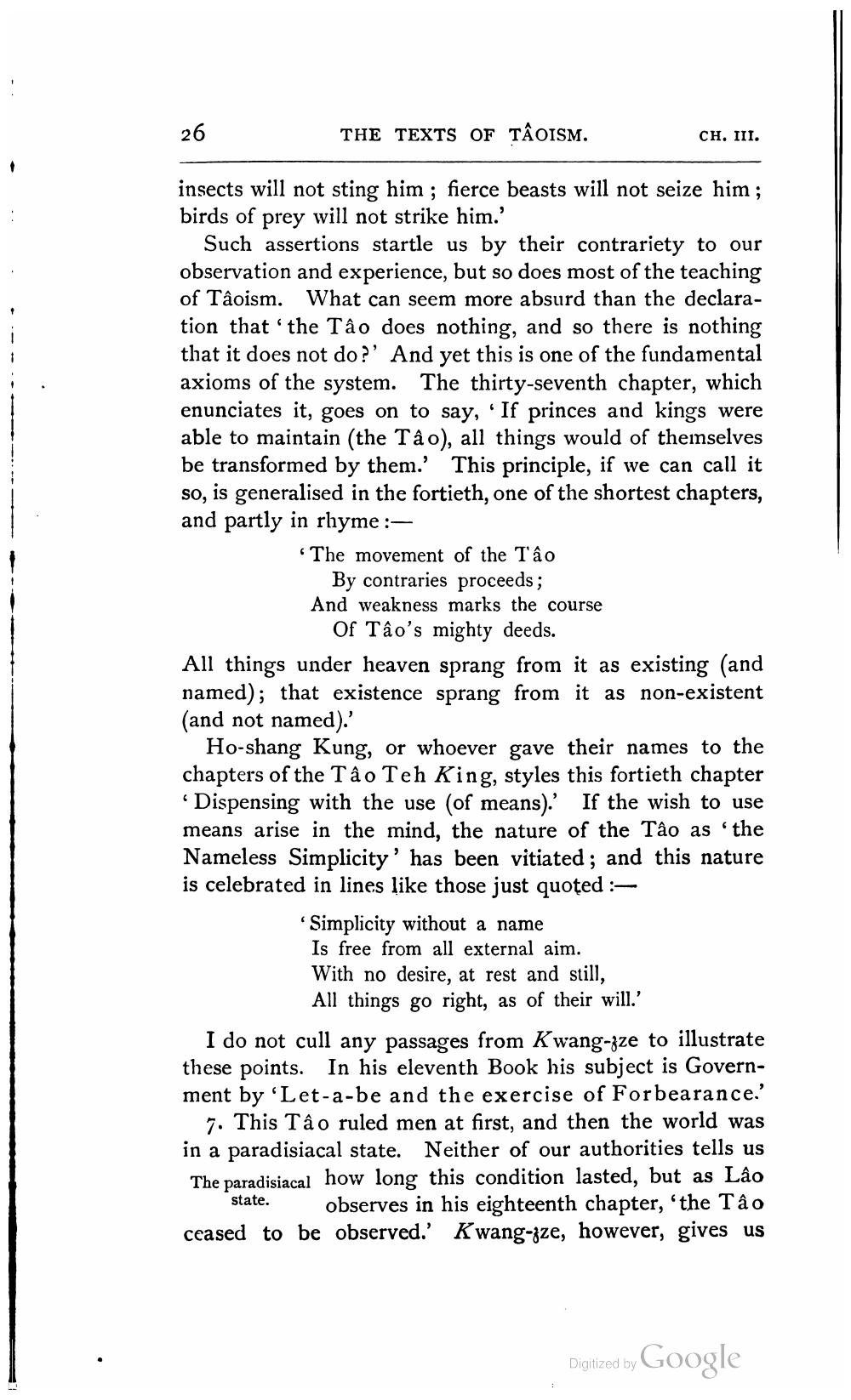________________
26
THE TEXTS OF TAOISM.
insects will not sting him; fierce beasts will not seize him; birds of prey will not strike him.'
Such assertions startle us by their contrariety to our observation and experience, but so does most of the teaching of Tâoism. What can seem more absurd than the declaration that 'the Tâo does nothing, and so there is nothing that it does not do?' And yet this is one of the fundamental axioms of the system. The thirty-seventh chapter, which enunciates it, goes on to say, 'If princes and kings were able to maintain (the Tâo), all things would of themselves be transformed by them.' This principle, if we can call it so, is generalised in the fortieth, one of the shortest chapters, and partly in rhyme :
:
The movement of the Tâo
By contraries proceeds;
And weakness marks the course Of Tâo's mighty deeds.
CH. III.
All things under heaven sprang from it as existing (and named); that existence sprang from it as non-existent (and not named).'
Ho-shang Kung, or whoever gave their names to the chapters of the Tâo Teh King, styles this fortieth chapter 'Dispensing with the use (of means).' If the wish to use means arise in the mind, the nature of the Tâo as 'the Nameless Simplicity' has been vitiated; and this nature is celebrated in lines like those just quoted :
:
'Simplicity without a name
Is free from all external aim. With no desire, at rest and still, All things go right, as of their will.'
I do not cull any passages from Kwang-zze to illustrate these points. In his eleventh Book his subject is Government by 'Let-a-be and the exercise of Forbearance.'
7. This Tâo ruled men at first, and then the world was in a paradisiacal state. Neither of our authorities tells us The paradisiacal how long this condition lasted, but as Lâo state. observes in his eighteenth chapter, 'the Tâo ceased to be observed.' Kwang-zze, however, gives us
Digitized by Google




